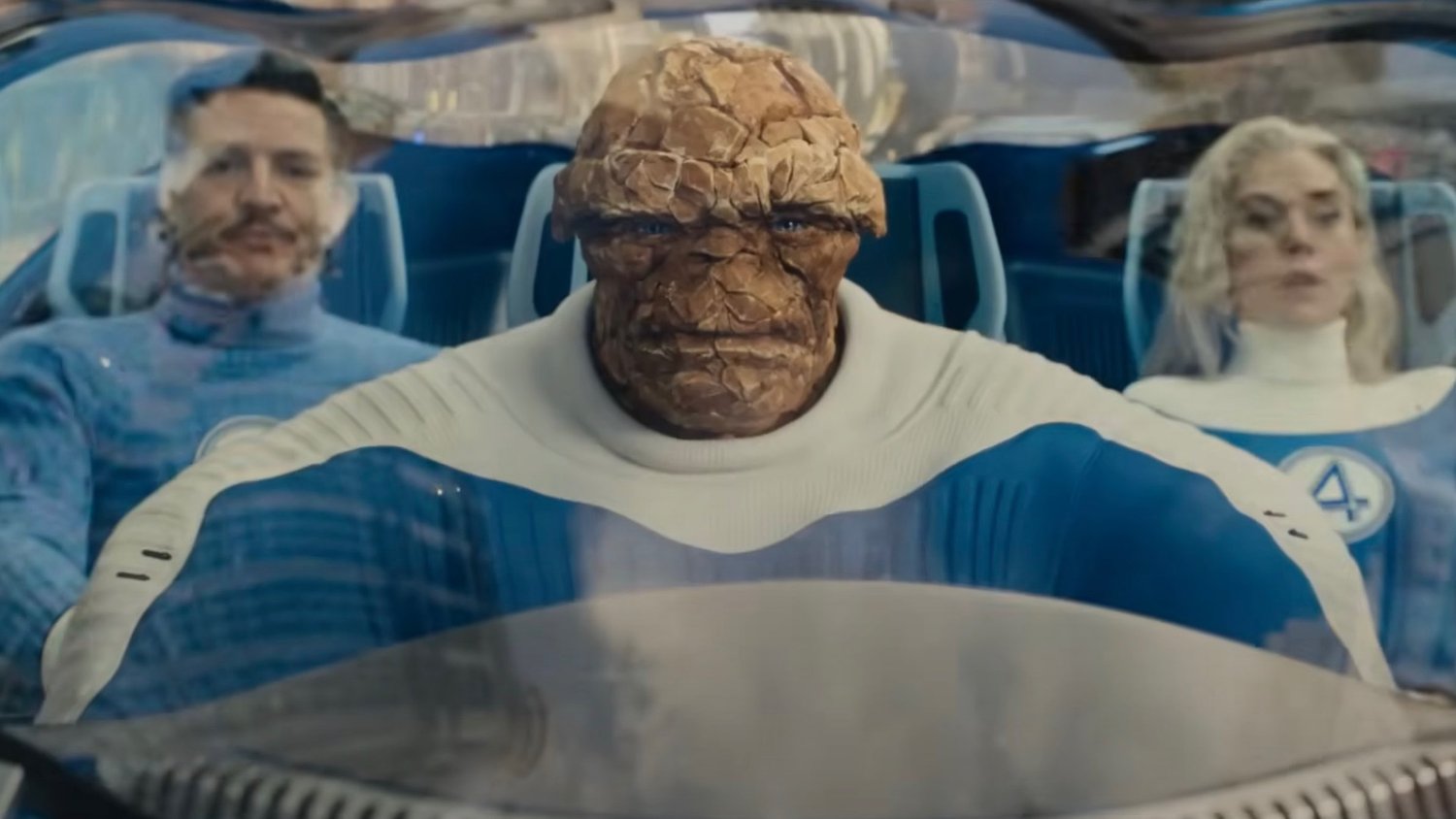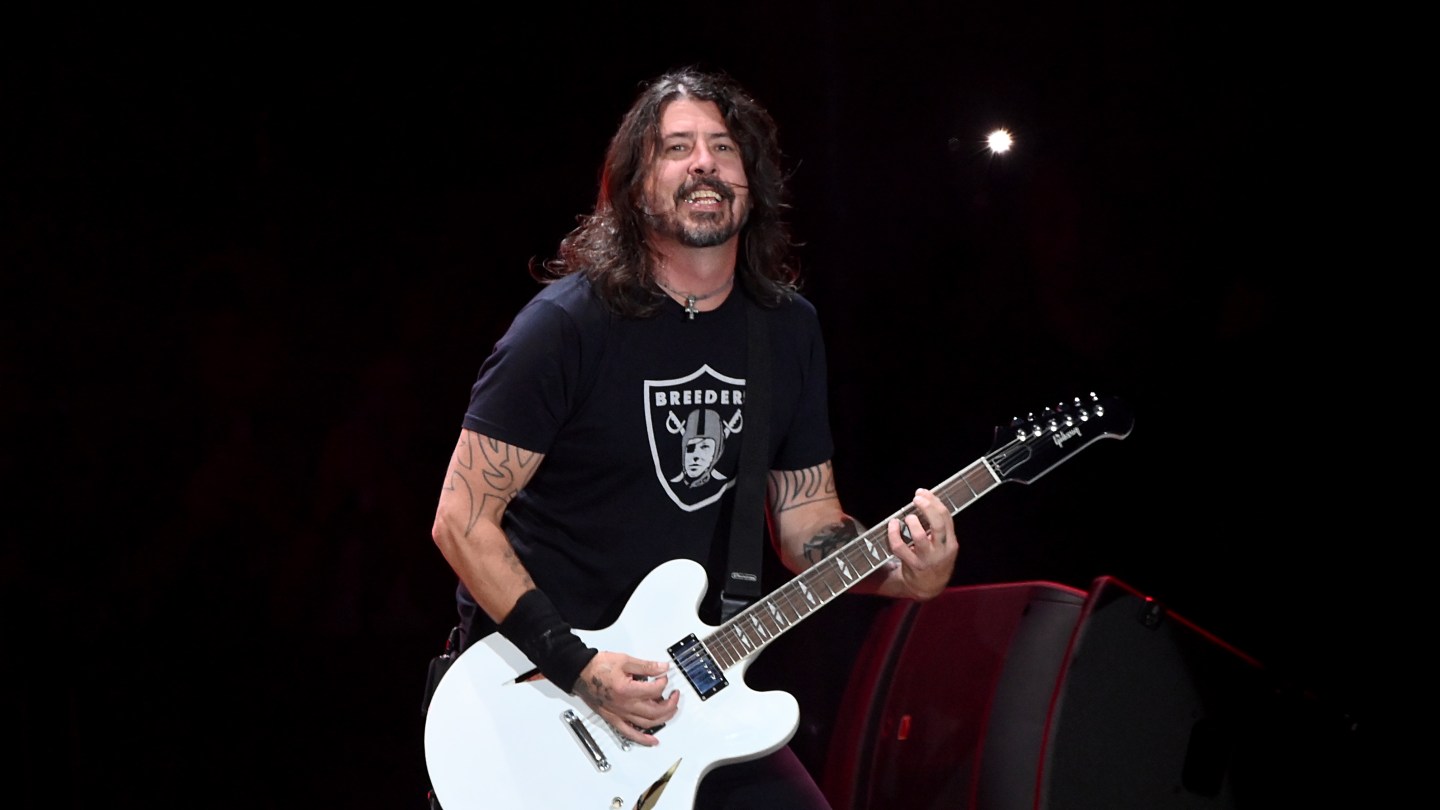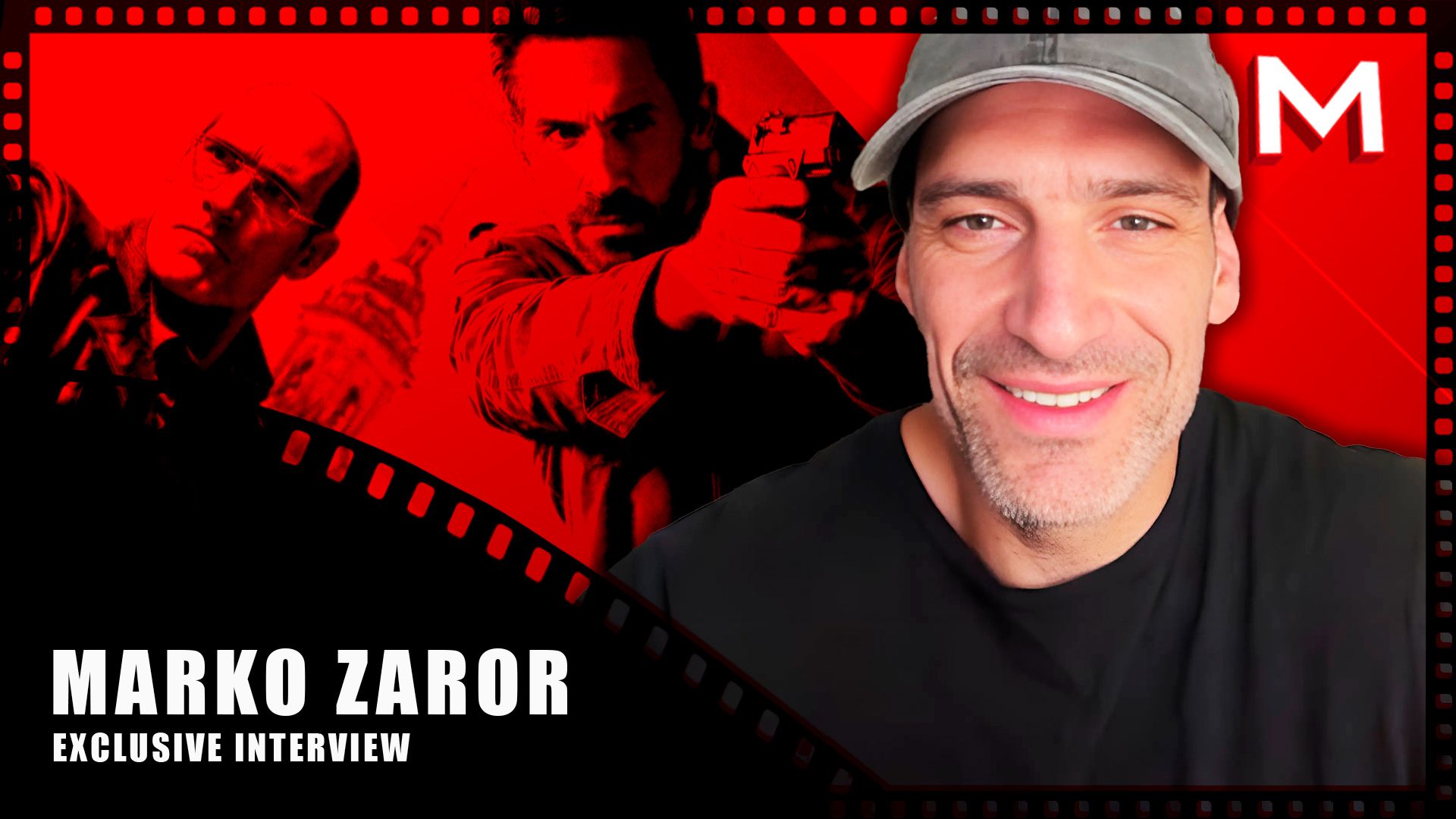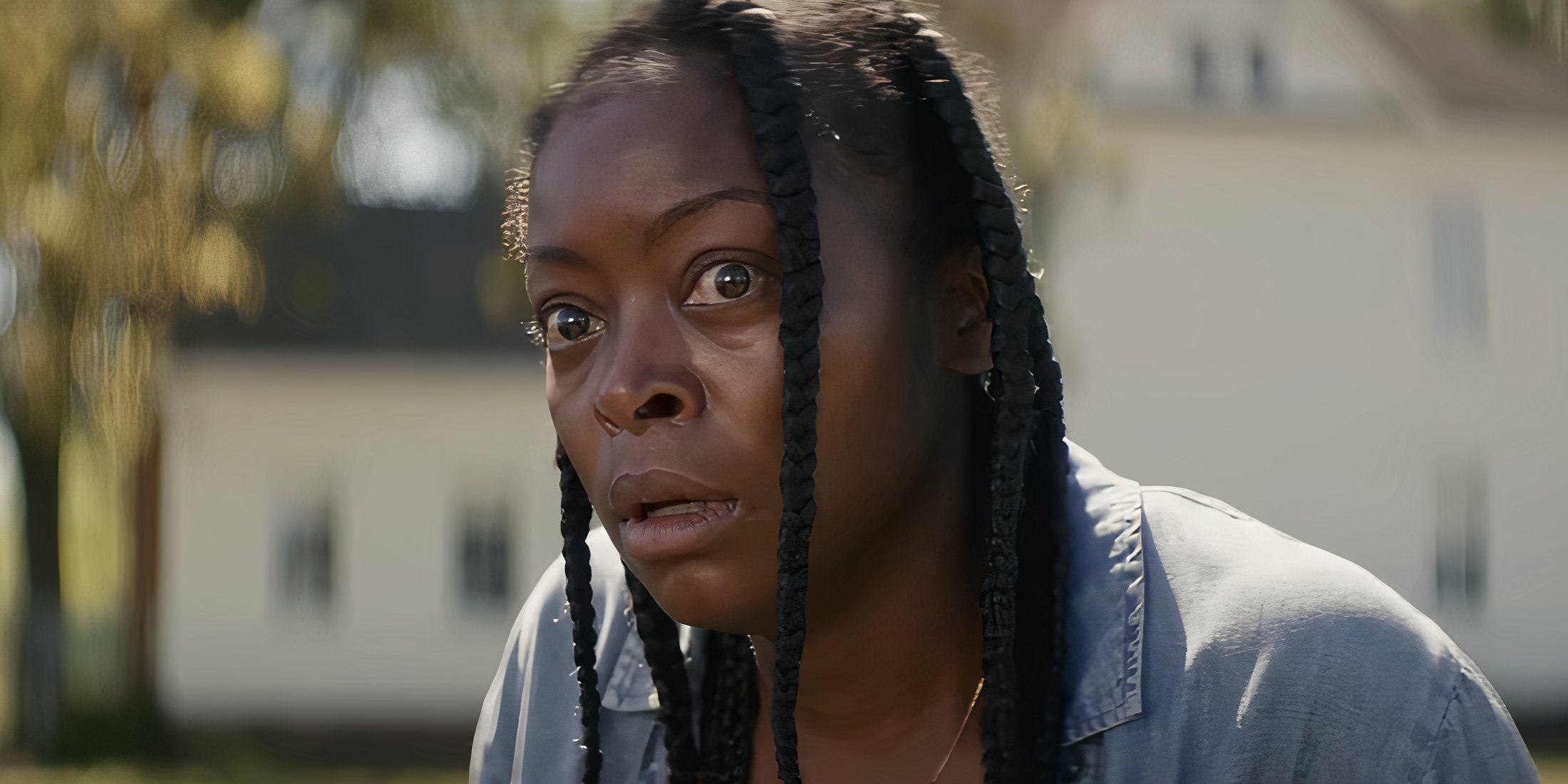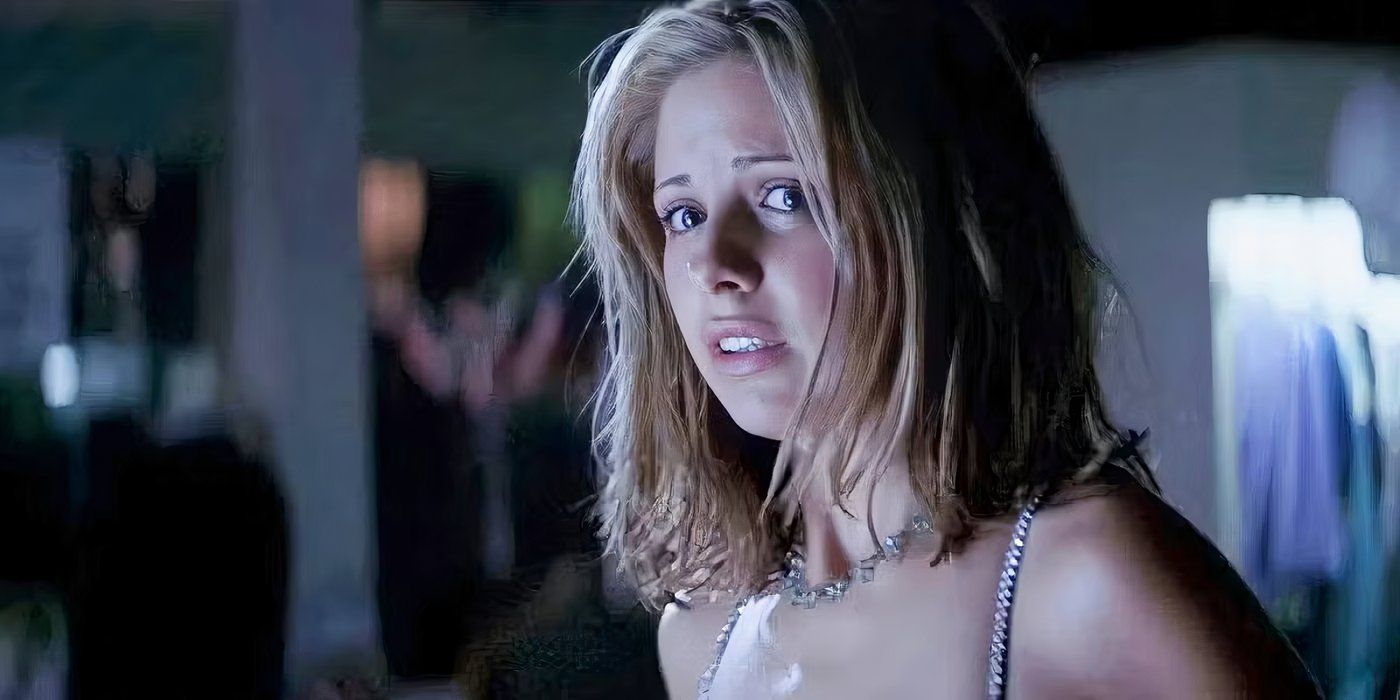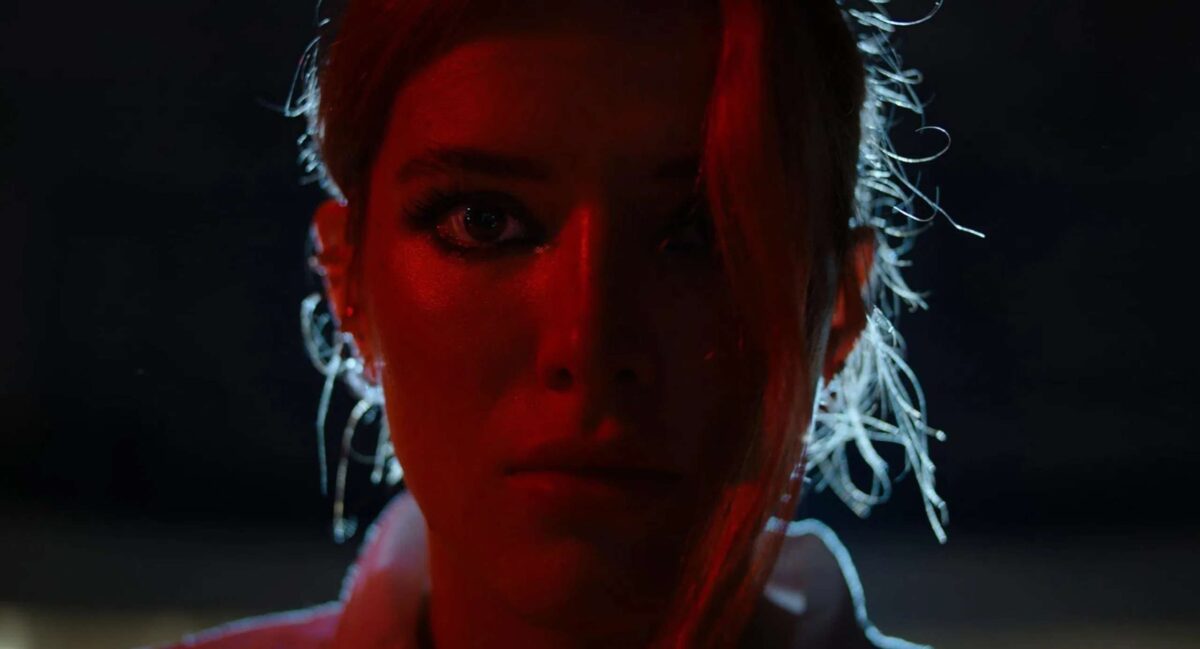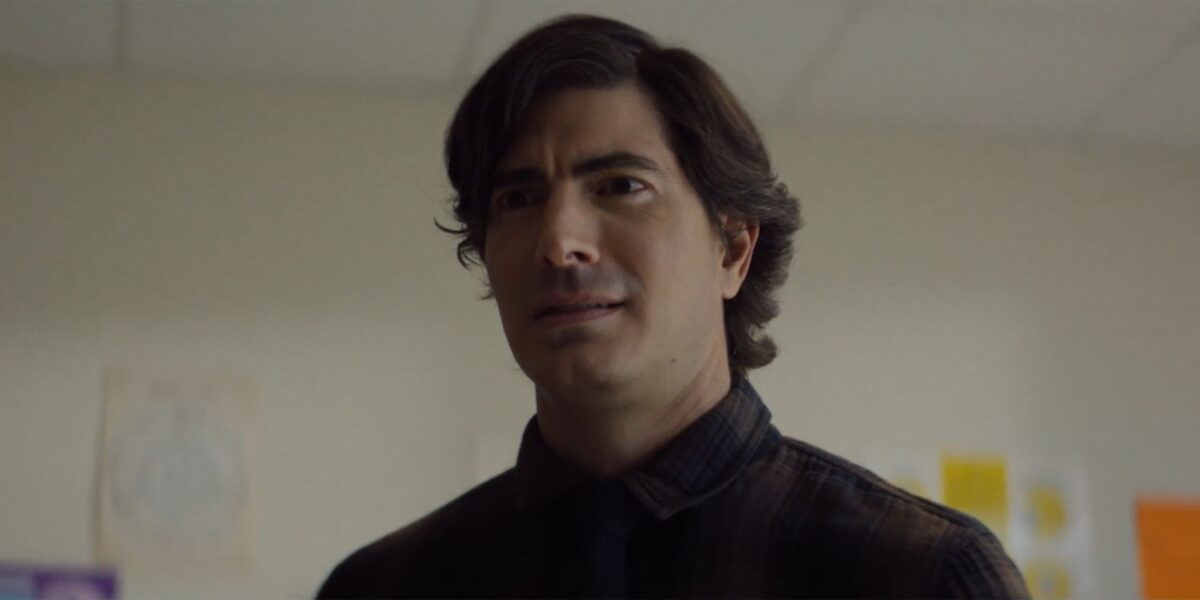
Mali Elfman on Her Directorial Debut Next Exit & Exploring Life After Death
Feb 15, 2023
Last summer, audiences at festivals across the country got to embark on a beautiful, melancholic journey to death with Mali Elfman’s directorial debut Next Exit. The film stars Rahul Kohli and Katie Parker as an unlikely duo who are forced by fate to embark on a cross-country trip to bring an end to everything. Along the way, the way they have to confront their trauma, examine who they are as people, and explore what it means to live and die. As Collider’s review of the film hailed it, “[Next Exit] leaves its little flecks of light in your soul once the credits roll.”
Ahead of Next Exit’s home release, Collider had the opportunity to chat with Mali Elfman to break down the journey she took with Next Exit from inception to production, how she approached death in a very accessible way, what she learned during the filming process, and scouting for locations that they could stay in, in addition to filming in. She also spoke about what she wants to film next.
Image via No Traffic for Ghosts LLC
COLLIDER: So I loved Next Exit. I saw a lot of films last year, and it still ended on my top 10 list because it resonated with me so much. I think I saw in a previous interview you said it took about 10 years to write, so I’m really curious to know what that process was like, from the inception of the idea to actually seeing it on screen.
MALI ELFMAN: Yeah. Well, first of all, thank you so much. It’s my little brainchild that’s been formulating for so long, and it’s not necessarily one that is the easy to market or easy to package or easy in that type of way, but it is one that genuinely came from a very earnest place inside of me. And it’s not like I was sitting there trying to write it for 10 years and couldn’t figure out what to say. I think part of it is trying to figure out this story that’s emotionally driven and not necessarily plot-driven, and finding inspirations for the different characters along the way were very much characters that I had met in my life.
Also, just getting busy with everything else. It’s so easy to be distracted by other things that you think you’re supposed to be doing, that it’s hard to sometimes just sit down and write the thing that you want to do because we’re trained, I think, to believe that those dreams don’t really come true, that you have to have the package. That you have to have the selling points, that you have to make somebody laugh or cry or do this within every single… So it was hard to know that the one that was the most outside of the box would be the first time that I would direct. And so, it was a very long process, and it was one that got shelved many times because I just, again, I think I had trouble believing in myself. And also, that’s me getting out of my 20s. That’s Rose, that’s Teddy, that’s everything. And then, eventually, starting to actually believe that a film led by emotions and vulnerability and being honest could actually be the thing that was most needed.
It definitely is. Something I thought was so interesting about Next Exit is because you can feel the touches of the pandemic on a lot of films that came out last year and the year before, because you get these much more intimate stories. I’m interested, did that feel like it changed at all, the urge to make this film at this time?
ELFMAN: Well, I think the urge to make this film when COVID hit [was because] I was so stressed. I was not one of the people who did well. I got shingles, I was just pure stress. And the thing was, every single time something happened in my life, a tragedy or something that I couldn’t comprehend, I would go back to the script. The script was my place that I was able to work through things. So when the pandemic hit, and I was sitting there, and I had a production that had stopped, I had this huge job that was supposed to be this big thing for me completely. It was so funny. It went to, “We’ll be back in two weeks, we’ll be back in four weeks. Where is everybody?” It just disappeared in front of me.
And so, I went back to this script, and it was, again, a very emotional and personal experience. I do think this conceit was the same before COVID as it was after, but people understood it more. The fact that one thing can change in terms of the reality that we thought that we knew, and the ripple effect that occurs. And that became something that was so much, everybody was like, “Oh, now I get it.” I remember before, people would be like, “That doesn’t happen.” And they’re like, “Oh no, that definitely…” It has a lot of side effects that you couldn’t have predicted.
Image via No Traffic for Ghosts LLC
Definitely. So before the pandemic, I worked in the film industry, so I always loved talking about some of the nittier-grittier things about making a film. I would like to know what the production location scouting process was.
ELFMAN: So early on, because my background is in producing, and I always knew that if I just took the script to producers, they would just be like, “No. There’s no way that you can do this.” And so I was like, “Wait, I have a plan.” So I had actually charted out on a map all the locations that I had wanted to go to. Most of them were places that I had already shot before, had some previous experience in, Kansas City was one that I had set up a film, ended up not shooting. New Mexico, I hadn’t actually shot in Texas before, but we were supposed to start in New York too.
The pandemic made it incredibly difficult because this was shot in early 2021 when we still were afraid to put people on flights. We weren’t quite sure, “Are we going to give the whole cast COVID if we fly them all out to New York?” So we ended up starting halfway and then driving and then doing a smaller unit back in New York. But what ended up happening is, when I first showed the producers the script, I knew that I needed a main hub. And so, all the interiors of the hotels were basically done in New Mexico, in Tucumcari.
What I ended up doing was, me and Derek Bishé, the lead producer on this, we just drove out in the middle of the pandemic, and we just found all of these motels that we could use that were all within a 20-mile radius of one another. The other thing was, it’s this thing, it’s basically bars, gas stations and motels. So we just went to all these places, and I was really glad that we did, ’cause the other thing that I realized is, I’m in a main hub, I live in Los Angeles. What the pandemic did to the rest of the country was really eye-opening. And so, I was very grateful to go to these places that… These motels hadn’t had anybody in them for months, and we just bought out the motels completely, because at that point, we didn’t know all that stuff. We bought out the cafés, so we took over the kitchens and would have our breakfast out of their kitchens. We lived in the motels, we shot in the motels, we used them as our base, and so the motels are really our saving grace on this.
Oh, I love that, which very much feels like it fits in with the aesthetic of the film as well.
ELFMAN: It does, yeah. Every location that you see was somewhere that we also lived, just about.
Image via No Traffic for Ghosts LLC
Adds to that lived-in feel. So you’ve done short films, you’ve worked in other areas of show business before. With this being your future debut, did you learn anything through this process that changed how you maybe looked at other aspects of the industry, or just other roles on set?
ELFMAN: That’s a really good one. One of the things that I knew from producing, because I’ve worked with so many first-time feature film directors or just first-time directors, is that your anxiety doesn’t help anything. Bringing that onto set every single day doesn’t help you get the day done. So whether I was nervous about something or not, it wasn’t going to help, so I really tried to go into every single day just feeling like, “I’m grateful for this day, and I’m going to appreciate this day. I have no idea what’s tomorrow.”
And the other big thing is, don’t look at the film as a whole. Do your prep work, have done all of that, break it into pieces and just look at a call sheet. Get the call sheet done. That’s what you need to do that day. You’ll bring in little pieces, and you write your notes to yourself, but I think it can get overwhelming if you think about it in terms of, “I’ve got to finish a feature film.” I think it’s much easier in terms of, “I need to get these beats today.”
The other big thing that I did was, we only had a team of 17 shooting this across the country, which was bananas. That’s also why the clerk checking in is our editor, Brett Bachman, our costume designer and makeup designer, Daria Derman, as nurse… Everybody got used in multiple capacities on this one. But I brought my editor with me, and the main reason for that was knowing we’re going to be in a lot of these locations sometimes for a few days, sometimes for a day, sometimes for two hours. And having him, he’s so fast, that is Brett Bachman. He would have almost everything cut by the next morning. So we could look at a scene and be like, “We have to get the snow. We have to get the trunk. We have to get something.” And it would just save our asses multiple times.
So be very, very prepared, basically.
ELFMAN: Yes. And then be very fluid too. The other thing was, things went wrong so much. I remember one day, I went outside and for some reason the car wouldn’t turn on, and I think younger me would’ve tried to fix the car, would’ve gotten in there, and older me went, “I know nothing about cars. Katie, Rahul, come over here. Let’s rehearse the scene.” And I was like, “Stick with your actors. Stick with your story. Somebody else much better at that will fix the car,” and don’t try to solve the things that you can’t solve.
Image via No Traffic for Ghosts LLC
Something I really like about Next Exit is the way that it approaches death, because death is such a heavy topic, and I found this to be such an audience-approachable way to look at absolution, the fear of absolution and death. How did you work to package it into such an accessible form of talking about death?
ELFMAN: Well, I’m so glad that you feel that way, first of all, thank you. Death is something that absolutely terrifies me, and I’ve lost people in my life who are very significant to me, and that was incredibly difficult, and it doesn’t make sense. I’ve tried religions, that’s why you get a little religious element coming in. Doesn’t really work for me. I’ve tried a lot of different types of spirituality, and for me, it was trying to say that it’s okay to be afraid of things.
It’s okay to wonder, and that it is actually a part of life. It’s something that we’re all so afraid of talking about because we… Or I shouldn’t say, “All.” Many people are afraid of talking about it. It’s a big scary thing, but it is actually a part of life, and it is actually something that I realized makes life so special. It makes every moment so special, and it makes the idea of wanting to give up, I think, can be very easy, or wanting a way out or wanting to stop feeling pain. I understand and I feel for all of those. There’s also a way to feel the beauty of today and the beauty of what is going on. And trying to find that balance was something that I spent a lot of time on. I spent a lot of time with the actors, with the script, because it was also imperative to me that anybody who had felt any of those feelings could feel also a sense of hope and light, while being earnest about the darkness.
Well, it came across very well. Yes, it came across very well. I have to say, Next Exit is a hell of a debut feature. So what’s next for you?
ELFMAN: I really want to make a horror film, an actual horror film. I always was trying to make a horror film first. It was funny that this one ended up being the one. I know, whenever people say, “Horror” or “Sci-Fi”, I’m like, I always pitched it as a road trip with two people, in a world in which something has changed with sci-fi elements and a ghost story, but it’s not a horror film. In fact, the opening, I really try to tell that to you. You might think you’re going into a ghost story that’s scary, you’re not. Actually, we’re going to reinterpret ghosts, and they’re not going to be scary anymore. They’re going to be something that we have to deal with and interact with. I love a ghost story though, and I do want to make a true ghost story. And so, that is really what I’ve been focused on, and I can’t wait to hopefully be able to shoot as soon as possible.
Next Exit is now on DVD and On Demand from Magnolia Home Entertainment under the Magnet Label.
Publisher: Source link
Seth Rogen and Rose Byrne’s Friendship Faces New Challenges in One of the Year’s Best Comedy Series
Apple TV+'s Platonic, a celebration of complicated friendships hailing from co-creators Francesca Delbanco and Nicholas Stoller, is finally back. The show's brilliant Season 1 saw complicated besties Will (Seth Rogen) and Sylvia (Rose Byrne) overcoming Will's divorce, Sylvia's relationship issues,…
Aug 2, 2025
A Disjointed Reel of Edgy Ideas
Mitzi Peirone’s Saint Clare, based on Don Roff’s novel Clare at Sixteen, is a film that sets its sights on being a subversive, blood-tinged thriller about faith, trauma, and psychopathy. With a leading performance by the underrated Bella Thorne, a…
Aug 1, 2025
I’m This Dark Comedy Horror’s Target Audience & I Couldn’t Love This Nostalgia-Baiting Movie More Than I Already Do
Ick is a fun, nostalgia-packed horror film that I loved every second of. Directed by Joseph Kahn and starring Brandon Routh as a former high school all-star jock whose dreams failed to carry him beyond an injury, Ick blends alien…
Aug 1, 2025
A Hilarious, Much-Needed Shot In The Arm For Studio Comedies
In the background of a shot in the Police Squad headquarters, men emerge through a doorway marked “COLD CASES” from what appears to be a giant freezer. No character ever comments on it. This clever play on words has no…
Aug 1, 2025
